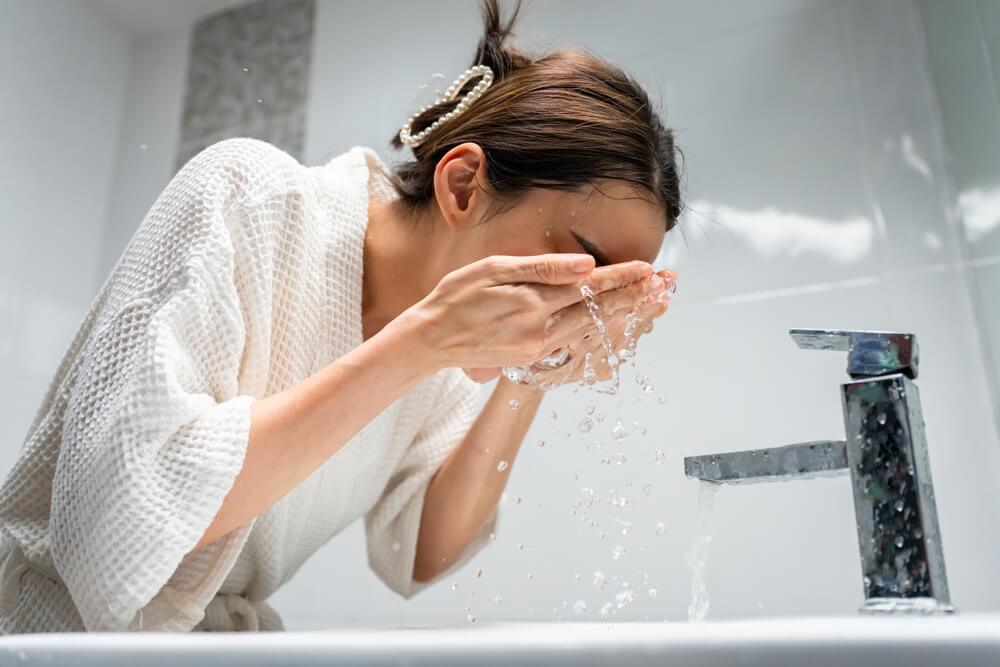What Body Systems Are Affected by Acne Quandary?
When it comes to understanding acne, the pivotal question many ask is, 'what body systems are affected by acne?' Acne is often viewed purely as a skin issue, but it is essential to recognize its wider implications on various body systems. For beauticians and skincare enthusiasts alike, comprehending the architectural complexity behind acne is vital to providing effective treatments.
Acne primarily manifests on the skin, creating visible blemishes often caused by clogged pores, hormonal fluctuations, and bacteria. However, its roots can trace deep within your body, affecting not just the skin but a cascade of bodily functions. Let's delve deeper into how acne disrupts several body systems and what beauticians need to understand for handling clients with acne-prone skin.

Understanding Acne: The Skin and Beyond
Firstly, the skin itself is the largest organ of our body, encompassing a multitude of functionsprotection, sensation, and thermoregulation, to name a few. Within the skin, the sebaceous glands play a crucial role in acne development by producing excess oil. Nevertheless, this oil and clogged pores can be symptomatic of deeper issues within the endocrine system.
The Endocrine Systems Role in Acne
The endocrine system is a network of glands responsible for hormone production. Hormonal imbalances, particularly those related to androgens, can often trigger acne. For beauticians, it is essential to recognize the signs of hormonal acne, which primarily appears along the jawline, chin, and neck. Recognizing the cyclical nature of acne related to menstrual cycles can be instrumental in advising clients on the best times to seek treatments.
Digestive System and Acne
Another body system intertwined with the manifestation of acne is the digestive system. A poor diet or certain food intolerances can lead to inflammation in the body, which can indirectly contribute to acne breakouts. Foods high in sugar and dairy have been commonly linked to worsening acne conditions, making nutritional education crucial for beauticians to share with clients. For a deeper understanding of dietary impacts on skin health, explore articles related to soaps for body acne.
Immune System Response to Acne
The immune system is another body system implicated in acne development. When acne occurs, the body may view it as an infection, sending immune responses to fight off the perceived threat. This response can lead to inflammation, further aggravating the acne condition. To fully comprehend how this affects treatment, beauticians should understand how to choose products that are anti-inflammatory in nature.
Psychological Aspects
Although not usually regarded as a 'system,' the psychological aspect cannot be overlooked. Anxiety and depression often accompany acne, transforming it from a mere skin condition into a mental health struggle. Beauticians need to provide emotional support and recommend appropriate skincare systems while being aware of the potential mental burden clients may carry due to their skin conditions.
What Can Beauticians Do?
So, what actions can beauticians take when dealing with clients affected by acne? Here are some practical recommendations:
- Conduct thorough consultations to uncover possible underlying issues in the endocrine and digestive systems.
- Educate clients on dietary choices that support skin health, such as anti-inflammatory foods.
- Utilize topical products that contain ingredients like salicylic acid and benzoyl peroxide known to effectively reduce acne.
- Encourage clients to adopt a skincare routine that maintains hygiene without stripping natural oils.
- Stay up-to-date with emerging treatments and therapies that target multiple body systems responsible for acne.
Understanding Treatments for Acne
Beauticians must also stay informed about the various treatment options available for acne. These can range from over-the-counter medications to prescription options. Each treatment can have different implications based on the body system affected. Personalizing care based on individual needs is crucial.
Natural Remedies and Their Benefits
Additionally, there is a significant interest in the natural realm for addressing acne. Many are turning toward natural remedies to avoid harsh chemicals that may exacerbate their skin issues. Natural ingredients like tea tree oil and aloe vera can be beneficial but must be tested for individual reactions.
Personal Experience and Case Studies
As with any interaction in the beauty industry, sharing case studies that illustrate successful treatments can provide both insight and hope to clients struggling with acne. These stories can build credibility and create a sense of community for those dealing with similar struggles.
FAQs About Acne and Body Systems
1. Why do hormonal changes cause acne?
Hormonal fluctuations can lead to increased oil production and can influence the type and amount of acne breakouts experienced.
2. Can diet really affect acne?
Yes, certain foods are known to trigger acne for some, particularly sugary foods and dairy.
3. How can dehydration impact my skin?
Dehydration can increase oiliness and impede the skins ability to heal, potentially exacerbating acne conditions.

Conclusion
Understanding what body systems are affected by acne empowers beauticians to provide a holistic approach to skincare. By addressing the issue from multiple angles, you can achieve healthier skin for your clients. Education, treatment options, and support help beauticians create effective, customized solutions for acne-prone clients, ensuring they feel their best from the inside out.

